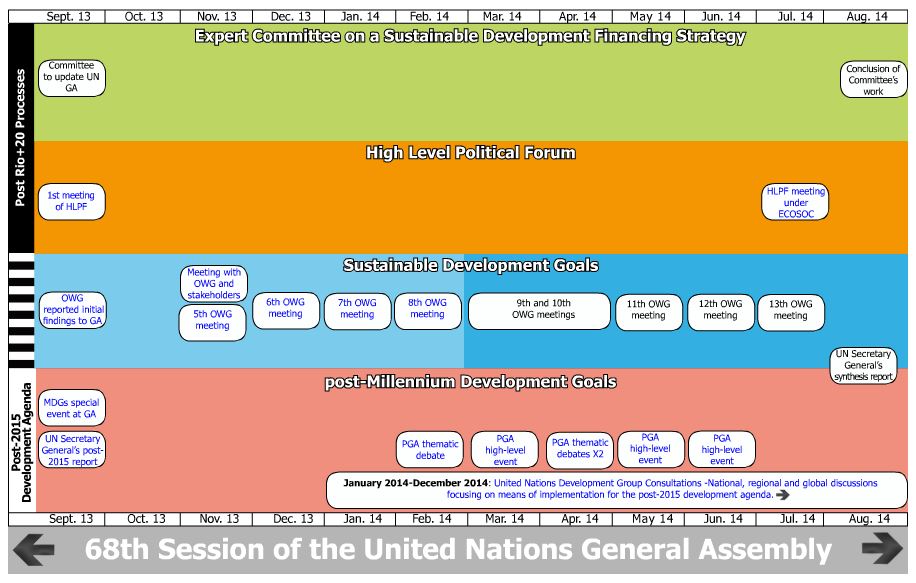Background: the 1992 Earth Summit
Rio+20 took place in June 2012, on the 20th anniversary of the first UN Conference on Environment and Development (UNCED), also known as the Earth Summit, at which the concept of ‘sustainable development’ was introduced to the international agenda.
The main outcomes of the Earth Summit were:
-
United Nations Framework Convention on Climate Change (UNFCCC)
-
United Nations Convention on Biological Diversity (UNCBD)
-
Agenda 21 (a non-binding, voluntarily implemented action plan on sustainable development)
The Rio+20 Process
Agenda 21 defined the nine UN ‘Major Groups’ that represent non-state actors in UN processes. One such group is the Local Authorities Major Group (LAMG), which was the main participation mechanism for UCLG and its sister networks in the Rio+20 process.
With the negotiations in 2011 focusing on the environmental agenda, UCLG campaigned for Rio+20 to address issues of governance, cohesion among territories, social inclusion, basic services and culture as part of a broader understanding of sustainable development.
The Local Authorities Major Group presented 8 recommendations to the UN Secretary General in New York in April 2012.
Outcomes: The Future We Want
The Rio+20 Outcome Document, “The Future We Want”, was positive for local and regional governments and represented an important milestone in the relationship between local governments and the UN. “The Future We Want” contains an unprecedented degree of acknowledgement of local and regional authorities by the international community. The document also addresses most of the issues that were raised by sub-national governments during the process.
The Future We Want: key contents
-
The document acknowledges progress made in sustainable development at sub-national level.
-
It also acknowledges the role of local governments in the implementation of policies and the engagement of other stakeholders. Article 45 recognizes critical role of governance at local and sub-national level. Local and sub-national governments are explicitly mentioned in the thematic and cross-sectoral areas.
-
The document contains a specific section on sustainable cities and human settlements. It recognizes the importance of cross-sectoral planning and a commitment to building the capacity of municipal governments, metropolitan areas and towns. The text also recognizes the role of local and sub-national authorities in public service delivery, poverty alleviation and risk management. Integral approaches are supported, partnership among cities and communities encouraged.
-
The document explicitly calls for a well-resourced UN Habitat and the implementation of the Habitat Agenda.
-
The document calls for financial mechanisms accessible to sub-national and local authorities to be strengthened.
-
Finally, it calls for the promotion of regulatory frameworks to stimulate public-private partnerships.
Full UCLG Analysis of Rio+20 and The Future We Want

